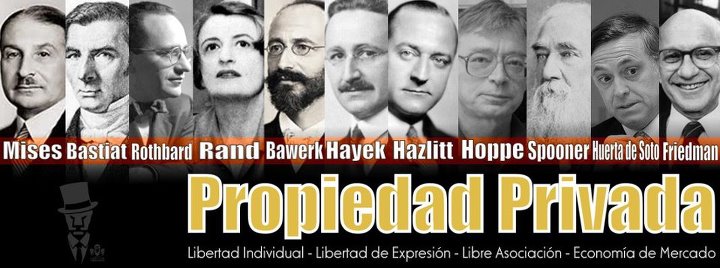Dentro de la iniciativa de Libertad Radical 1863, que busca rescatar las figuras y prácticas que hicieron realidad el liberalismo clásico en Colombia, especialmente en la segunda mitad del siglo XIX, presentamos aquí dos textos, entre más de una decena que hemos encontrado al respecto, muy relevantes para estudiar el período de la banca libre. El primero es de Lina María Echeverri, que pertenece al libro Ensayos de historia monetaria y bancaria de Colombia, compilado por Fabio Sánchez Torres, Bogotá: Tecer Mundo, 1994. Sobre este texto transcribimos la introducción del editor del volumen:
El trabajo de Lina Echeverri se refiere al funcionamiento del sistema de banca libre en Colombia, que floreció entre los años 1865 y 1886. Al comienzo hace un recuento de lo que era el sistema monetario antes de la banca libre y de las circunstancias históricas que condujeron al desarrollo de ese sistema: en primer lugar, la expansión del comercio agrícola hizo que los comerciantes exportadores e importadores se dieran cuenta de la falta de fondos prestables y comenzaran a expandir sus actividades hacia algunas operaciones bancarias. A medida que las transacciones y el comercio aumentaron, los banqueros principiantes expandieron sus actividades financieras; al mismo tiempo, ampliaron sus líneas de crédito y comenzaron a hacer préstamos a agricultores y artesanos. En segundo lugar, la Constitución de Rionegro de 1863, de tendencia liberal tanto política corno económicamente, tuvo una enorme influencia en la organización del sistema bancario. Dentro del trabajo se dan algunos lineamientos y supuestos teóricos del funcionamiento de un sistema de banca libre, y dice que "es un sistema monetario en el cual los bancos privados, en forma competitiva y sin ser regulados por el gobierno, emiten pasivos a la vista, redimibles en una moneda mercancía no controlada por las autoridades". A lo largo del capítulo hace una serie de comparaciones con el sistema de banca libre que prevaleció en Escocia hacia finales del siglo XVIII, con el fin de expresar que no es tan difícil ni arriesgado un sistema de ese estilo y que si no hubiera sido por la necesidad del presidente Rafael Núñez de financiar sus problemas fiscales, la banca libre en Colombia habría alcanzado niveles de desarrollo bastante parecidos a los escoceses. Según la autora, la banca libre ayudó en buena medida al desarrollo y crecimiento de la economía colombiana, debido a que "(las sucursales de los bancos)... les trajeron beneficios económicos a las comunidades donde se localizaron ya que facilitaron las transacciones comerciales y de negocios y contribuyeron a financiar las primeras aventuras industriales en Colombia.
El segundo es de autoría de Adolfo Meisel, y es el capítulo 5 de The Experience of Free Banking. London and New York: Routledge. 1992, editado por Kevin Dowd. Unos fragmentos para antojar al lector:
Although the period under consideration (1871–1922) was characterized by the creation of banks, the number established in the era of free banking (1871–86) was larger than in subsequent subperiods (see Table 5.1).
From 1863 to 1886, the Colombian state was organized under a rather extreme federalist constitution, the Constitution of Rionegro, which adhered to the principles of Manchesterian liberalism. This constitution made each regional state—and Colombia had nine— responsible for the regulation of economic activity, including banking. A good example of the spirit of laissez-faire that predominated in Colombian legislation of the time is provided by the banking laws of the State of Bolívar. This legislation gave ample space to private initiative and permitted only a minimum of government intervention. As the basic banking law of the State of Bolívar declared in its first article, ‘The establishment of banks of issue, deposit, and discount and mortage banks is free in the state and their activity is only subject to those duties that the laws impose on commercial companies and merchants’.4 Equally there were no barriers to the entry into the banking business. No charters were necessary and there were no minimum capital requirements.
It is very important to stress that the government’s monopoly of note issue arose in 1886 from its desire to obtain resources through seigniorage. The pressing fiscal demands of the government led it to suspend the convertibility of its notes, and consequently to abolish, supposedly temporarily, the right of other banks to issue notes. The government’s note monopoly did not arise form any dissatisfaction with the way free banking had operated, and there had been no panics or abuses that had led people to question the principle of free banking.
Since the earlier experience with free banking (1871–86) had been reasonably successful but the later monopoly issue (1887–1909) had produced considerable instability, it was quite natural that most Colombian policymakers seemed to favour free banking. The tendency towards free banking is reflected in the fact that eleven out of eighteen banking reform bills presented to Congress in the period from 1911 to 1916 favoured some form of free banking (Ibañez 1990:176–7). However, one free banking sentiment began to dissipate towards the end of the decade. As a result of international influences Colombian policymakers started to favour the establishment of a single bank of issue. The examples of France, England and Germany were cited as cases where free banking had been abandoned, but perhaps the biggest impact was caused by the establishment of the Federal Reserve System in the USA in 1914 (Meisel 1988:100).

